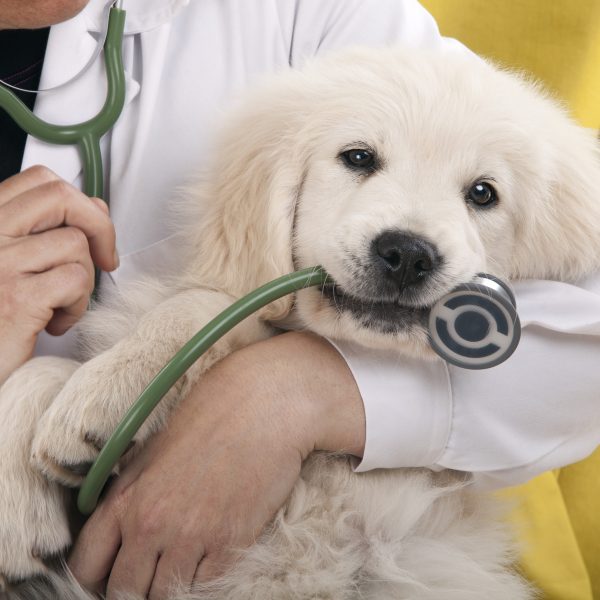How to Choose the Right Veterinarian

When you decide to add a puppy or a dog to your life, you’re also adding a lot of visits to the veterinarian. Much like choosing your own family doctor, you want to make sure your vet is someone you can trust, who has your dog’s best interest at heart, and someone you don’t mind seeing on a regular basis. Here’s how to choose the right veterinarian:
1. Start Your Search Early
You don’t want to wait until an emergency or it’s time for a checkup to find the right veterinarian for you. It’s best to start your search early so you have time to gather some names and offices, do your research, and make a visit to the offices and facilities.
You want to make sure you are ready to go to the vet when you need one and that you know where you’re going, who you’ll be seeing, and what to expect when you get there. This is one of the biggest tips for smoother veterinarian visits.
2. Ask Family and Friends for Recommendations
If you’re established in a town and have family or friends nearby, ask them where they take their animals. Sometimes, the best way to find a good vet that works for you, or to avoid a potentially bad match, is to ask people you trust for their experiences. At the very least, you’ll end up with a list of names and offices you can start checking out.
3. Ask Local Shelters or Breed Clubs for Recommendations
If you’re new in town or just want a different perspective, you can also ask for recommendations from your local shelters or breed clubs. These organizations care about dogs and the health of their dogs is a top priority, so you should be able to get a few good vet recommendations from these sources.
4. Look Them Up Online
You can also search online to help build your list of potential vets. Once you have your list, make sure you look them up online. This will let you see their current office information and give you an indication of whether or not it is up to date and will also give you a chance to see what other people are saying about them.
Granted, a negative experience or perceived negative experience tends to be shared more than a positive one and there are a ton of trolls out there, but online reviews can be helpful in evaluating whether a potential veterinarian is right for you. You can also figure out their name and check with the licensing boards to make sure they are legitimate and currently licensed to practice.
5. Visit the Facility In-Person
Everything could look amazing online, but you want to make sure you visit the facilities you’re considering in-person and you want to bring your dog along. Even if you think you’ve found the right vet for you, visit a couple more facilities just to be sure. Many facilities cannot handle pop-in visits as they’re busy, so you’ll want to call ahead. Plus, you can save yourself some time by calling prospective vet clinics first.
For example, you should not need an actual check-up or procedure for your dog in order to check out the practice. So, if they insist over the phone that you can’t come in unless they are seeing your dog for something other than the visit, then you know it’s time to move on to the next name on your list. They may ask you to schedule a time to come in as they may not be able to accommodate random pop-ins and that’s okay, but you shouldn’t have to schedule something for your dog in order to stop by.
At the facility, you’ll be checking to make sure things are clean, that their equipment is up to date, their vets are certified and licenses are current, and to get an overall feel for the place. You also want to meet as many people in the office as you can to get a feel for how they interact with your dog. As long as your dog is properly trained and socialized, they should get along fine with everybody. If you feel comfortable, secure, and relaxed in the space, it’s likely a good thing. If the facilities give you weird vibes or an odd gut feeling, it’s okay to cross it off your list.
6. Consider Other Factors
As you are considering the right vet for you, think about other factors as well. Think about the office and appointment hours and whether they will work with your schedule. Think about the location of the office and how convenient it is for you to get there.
Also think about what kind of interaction you prefer with your vet. Would you prefer someone who is more personable or someone who sticks to business? Do you want someone who thoroughly explains everything in detail upfront or someone who gives you the basics and elaborates if you ask for more detail?
Considering these things can help you find veterinarians in your area and choose the right veterinarian for you. You want to make sure you get it right because you will be relying on them to give your dog good care and you and your dog will be seeing this person on a regular basis. There are many questions to ask for your first vet visit and questions you’ll need to ask at every visit; you want to know you can trust your vet to answer honestly and with your dog’s best interest in mind.
